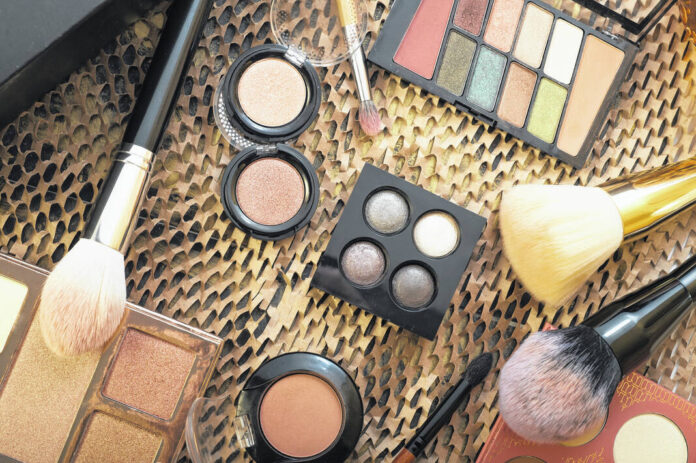Dear Answer Angel Ellen: I seriously want to know why so many women have SO much makeup. I have friends and relatives who practically hoard makeup. One, who rarely wears lipstick, had 60 tubes in her drawer. I know some who have makeup suitcases to carry a ton of accouterments on trips! My sister has about 40 eye shadows, 20 or so eyeliners and mascaras and a huge pile of blushers and lipsticks. Also, a jumble of facial creams and foundations. Yet, she looks exactly the same every single day. I have one eye shadow palette of six colors, two pencil liners, and a mascara. They fit in my purse! Every year or so, I take a trip to Ulta to acquire an updated palette based on professional advice. With a six-to-eight-slot palette you can change up your look for every situation. But, I am considered the weirdo in this? LOL.
— Michele B.
Dear Michele: I don’t get it either. I too have friends whose makeup collection is astonishing. They tell me you can never have too many blushes or eyeliners — and don’t forget the eyebrows! In tough economic times, when many retailers report declining sales, beauty items are the exception with big chains like Walmart and Ulta Beauty reporting strong sales. The “lipstick index” theory holds that when consumers are cutting back on discretionary items, they like to indulge in small luxuries like lipstick and multiple eye shadows. I stick with a half-dozen makeup products and call it good. But if it makes your sister happy — or anyone, for that matter — I don’t see the harm in collecting makeup like others collect, I don’t know, bulldog figurines?
On the other hand …
Dear Answer Angel Ellen: Having never been a fashionista, and now retired from work outside my home, I tend to wear my clothes until they fall apart. At that point, they are definitely not nice enough to donate to good causes like Goodwill or Salvation Army, so what am I to do with them? There are only so many household rags I can use. It seems wrong to put these worn items in the trash, or at least environmentally irresponsible. Do you have any suggestions?
— Gillean W.
Dear Gillean: Thank you for asking that question, which is an important one. And a complicated one. For a thorough answer I went to New York Times-owned Wirecutter (wirecutter.com), an independent product review site that does the research for consumers on a huge range of products — and issues, like clothing and textile recycling.
In a comprehensive article titled “How to Responsibly Donate and Repurpose Your Castoffs,” I found a couple vetted places that could work for you. For Days (fordays.com), a recyclable clothing company, will accept any clean clothes or textiles but your good deed will cost you. For $20, they’ll send you a “Take Back Bag” that holds 15 pounds of your castoffs (free shipping). TerraCycle (shop.terracycle.com) lists many companies that will recycle the product containers they sell (like toothpaste and pens) and also sells “Zero Waste Boxes” — $81 and up — to fill and send back (free shipping).
Some clothing companies also recycle clothes, but what they do with them is sometimes murky. Maybe easier (and certainly cheaper) is to talk to local animal shelters about whether they need cloth for animal bedding.
Reader Rant
Michelle S. writes, “PLEASE, PLEASE address this! WHY ARE ARMHOLES soooo weirdly cut?? I once spent $75 on a shirt with bizarre armholes, then had to pay to have them fixed. Just because you’re L or XL or bigger, you don’t necessarily have the arms of a lumberjack. Bigger women have busts and hips and bellies. We can’t wear a shirt made like a tube! Please tell these makers to use actual tailors and measure bigger people. Don’t just measure one ‘perfect’ person and cut everything wrong for everyone else.”
Send your questions and rants – on style, shopping, fashion, makeup and beauty – to [email protected].







